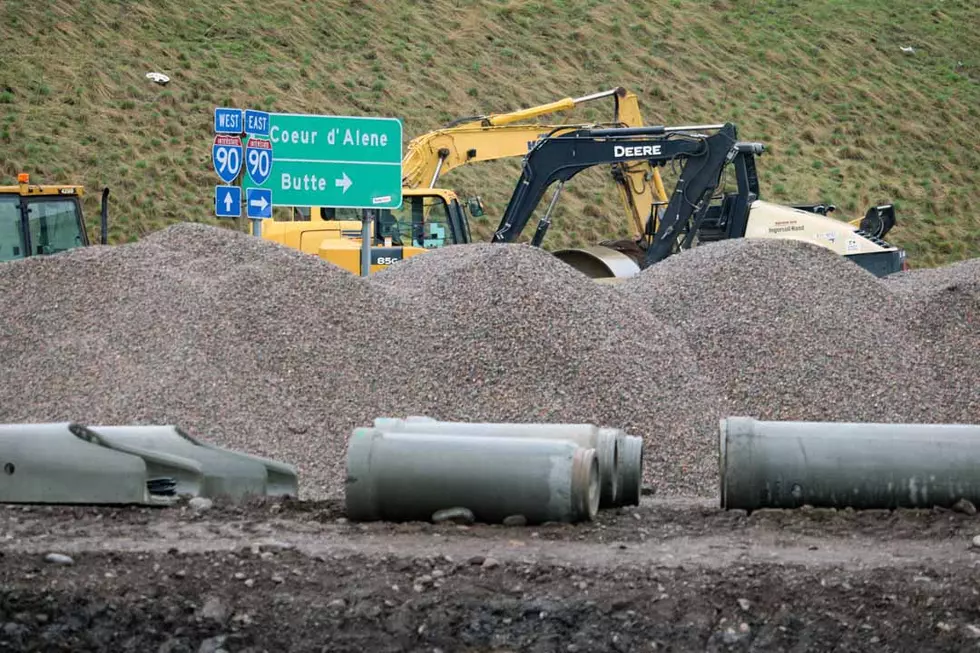
Missoula City Council to county: Let residents decide 2-cent gasoline tax
Despite two dissenting members, the Missoula City Council on Monday voted to allow Missoula County residents an opportunity to decide whether they want to support or deny a gasoline tax of 2-cents per gallon.
The issue could be placed on the June ballot if Missoula County commissioners approve the measure next week. Missoula City Council members opted in, saying it's an issue voters should have a chance to decide.
“When we have an opportunity to allow the public to weight in, we should,” said council member Heidi West.
The issue before county commissioners is simply whether to place the measure on the ballot. If they do, the issue before voters would be simple – approve or deny a gasoline tax of 2 cents per gallon to fund local road repairs and other infrastructure needs.
A handful of business owners and community members last month expressed concern that local government has not been able to keep pace with road maintenance and planning given budgetary constraints.
Boosting the gasoline tax could help fill the funding gap without turning to property taxes for road-related needs, advocates contend.
While the City Council has no say in whether the measure ultimately passes, the majority of its members said the voters should have a say. The federal gas tax hasn't changed since 1993, council members noted, even as the cost of asphalt, oil and other materials increases.
“The cost of maintaining our roadway goes up dramatically when we allow them to deteriorate to the point where they need to be rebuilt,” said council member Jordan Hess. “It would be bad public policy to let that happen. It would be bad for the taxpayer and bad for the city. A local option gas tax will allow us to make significant improvements in our transportation network.”
State law gives counties across Montana the authority to adopt a resolution calling for a bump in fuel taxes, though that's capped at 2 cents and all revenues must be spent on transportation needs. The law also says voters must make the ultimate decision. Missoula County residents have resisted that call in the past.
But road maintenance and repairs have risen higher on the public radar, along with the realization that the budgets of local governments across the state have grown increasingly tight in recent years as material costs rise.
According to Missoula County, boosting the gasoline tax by 2 cents per gallon would generate around $1.1 million annually. It would be split equally between the city and county, boosting their road funds by roughly 8%.
“It would allow us to improve services,” said Jeremy Keene, the city's director of Public Works. “It's something the city and Missoula County have been discussing for several years.”
While Sandra Vasecka and Jesse Ramos didn't deny that additional investments were needed in local roads, they both voted against placing the measure before voters. Vasecka said it constituted another tax increase.
“I was voted in to protect our tax dollars, not just our property tax dollars,” she said. “I do agree we are under-funding our infrastructure. That's why I'm excited for this budget season to find out how we can divert more dollars to our infrastructure.”
Ramos agreed, saying the city had a spending problem, not a revenue problem. He suggested the city could divert funding from other services to pay for road maintenance without the gasoline tax.
“I agree that a lot has gone up since 1993, but that includes population and government revenue, and government revenue has gone up at a much larger rate than inflationary costs would allow for,” Ramos said. “The more people we have and the more people we have paying taxes and the higher the revenues go for the government since 1993, the more we should be able to essentially pay for that.”
But advocates contend the 2-cents per gallon increase would do more than simply fund local road repairs. They believe it would help the city and county establish the matching funds needed to chase down federal grants, such as the $13 million BUILD grant awarded last year to the county for work west of Reserve Street.
“We have very few tools other than property tax at the city to take care of this crumbling infrastructure – this under-funded infrastructure," said council member Amber Sherrill. "I like this because it's user based. I like this because it's a great tool to leverage federal money, which we're always trying to get.”
